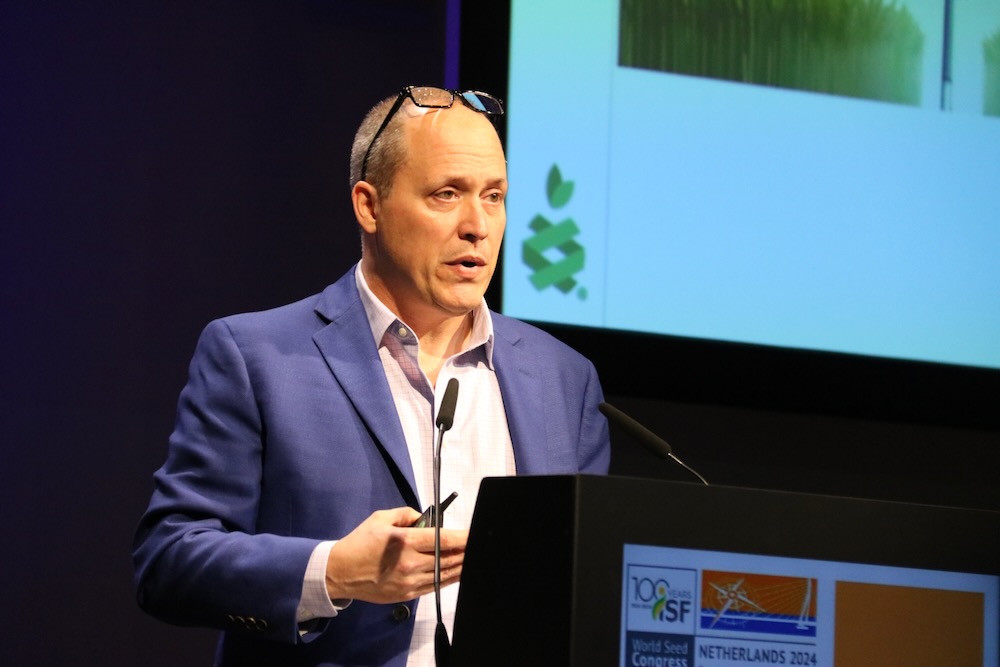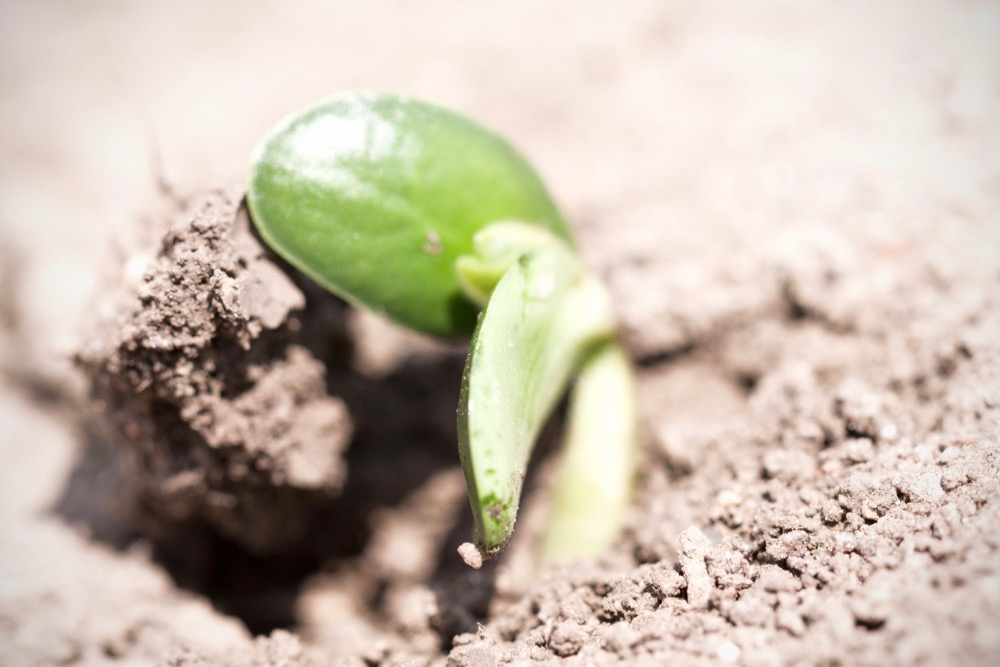Gene editing race, illegal seed use in crosshairs at World Seed Congress

Glacier FarmMedia’s John Greig is at the World Seed Congress in Rotterdam, The Netherlands this week. Watch for his daily updates on our websites and more in-depth coverage in our publications.
There are now enough of the major crop-producing regions in the world with a pathway to market for gene-edited crops to start to drive new products.
This is expected to create a race to market for products, which will not have to go through the arduous, costly and time-consuming pathway for genetically modified crops.
Read Also

Pulse weekly: Farmers watching fields, chasing deadlines
The second half of May has been one of the rainiest periods seen in Manitoba in a number of years. On May 24 and 25, upwards to 70 millimetres of precipitation were reported in most areas, causing seeding to become delayed in multiple locations.
The critical difference is that gene-edited crops involve turning on and off genes within the genome of the crop, without introducing genes from other species, as has been the case for genetically modified crops.
Canada is now green on global maps shown at the World Seed Congress in Rotterdam. There’s regulatory certainty for gene-edited crops after regulations were announced in April. That means Canada can play a part the rapid growth of innovation around the world.
It’s been a lot of work for Canadian seed and crop groups to continue to push the need for clear gene-editing regulations.
Krista Thomas, vice president of trade policy and seed innovation with the Canadian Grains Council said the outcome of the Canadian process yielded a good result.
“I think Canada’s regulatory approach for gene editing is the best in the world because it’s pragmatic and it’s science-based and it maintains a product-based approach,” she said at the World Seed Congress where she was a panellist in a session on the state of gene editing regulations around the world.
Watch: John Greig reports from day two of the World Seed Congress
There are already signs that a lot of the innovations will come early on from new companies, such as Pairwise in the United States. Pairwise is a six-year-old North Carolina company that now employs 120 people and is working to submit early products into the newly created regulations in countries around the world.
Pairwise was the first to have a gene-edited produce crop go to market in the United States, with its mustard greens in 2023. The company aims to make fruits and vegetables more attractive to people, such as working to create a pit-free cherry. Pairwise is also working on higher-yielding corn, with an about 10 per cent increase, after only two years of development, said Dan Jenkins, vice president of Regulatory and Government Affairs for Pairwise.
Other parts of the world are also growing their ability in gene editing. In Africa, there’s a concerted effort to develop the lab and human capacity to work on gene editing, with eight countries in the African Union with regulations that allow gene editing.
Europe targets microplastics in seed coatings
New European regulations are pushing seed companies to find ways of coating seeds without using materials that end up as microplastics in the environment.
Microplastics occur when plastics break down and are persistent in the environment, meaning that the polymers aren’t soluble in water and don’t degrade. There’s increasing concern about the volume of microplastics being found in the environment around the world.
Polymers are used to help ensure the crop protection product flows precisely onto the seed and then sticks to the seed. They also help reduce dust from the products as the seeds run through a planter, said Rob Pronk, global marketing manager with Incotec, which provides seed treatment products to seed companies.
The agriculture sector is a small contributor to microplastics, but “we feel responsibility to do something about this,” says Bert Compaan, research manager of seed pathology at Bejo Zaden, a Dutch seed company. He is on an International Seed Federation committee that created a position paper on microplastics in seed treatments that calls for the elimination of the practice.
Campaan was part of a panel at the ISF’s World Seed Congress recently in the Netherlands.
The European Union’s legislation on microplastics was passed in October 2023 and gives companies five years to find replacements for products without active ingredients and eight years for the polymers in crop protection products.
New agreement targets illegal seed use
The global seed sector getting serious about the use of illegal seed.
A memorandum of understanding was signed at the World Seed Congress involving 13 organizations from around the world focused on stopping the illegal use of seed.
The group includes the Seed Association of the Americas, where Canada is a member.
While there is some concern about farmers saving privately developed seeds in Canada, the challenges in Canada pale compared to other parts of the world. Canada is unique in that much of the wheat seed grown in Western Canada is from public breeding programs.
There’s more concern with non-farmers who are collecting and reselling seed for their profit.
Antonio Villaroel, managing director of Gestión de Licencias Vegetales (GESLIVE), an organization in Spain, said that of 750 cases his group has taken to court over the past 30 years, only about 12 were farmers.
Of greater concern are other industry sellers of illegal seed including some cooperatives, grain traders and seed dealers.
In Brazil, Diego Risso, executive director of the Seed Association of the Americas, says about 40 per cent of soybeans planted could be illegally grown.
The announcement was made at the International Seed Federation’s World Seed Congress where deal-making on seed is common, with a large room with 300 tables kept busy over three days.
Marco van Leeuwen, outgoing president of the ISF, says that the organization also has work to do to clean up what happens around the congress, and companies and individuals who are found to support the sales of illegal seed won’t be allowed at the congress.
Source: Farmtario.com

